Related Research Articles
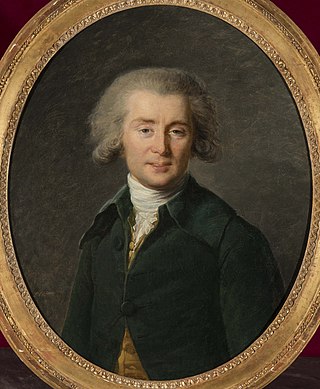
André Ernest Modeste Grétry was a composer from the Prince-Bishopric of Liège, who worked from 1767 onwards in France and took French nationality. He is most famous for his opéras comiques.

Michel Corrette was a French composer, organist and author of musical method books.
Opéra comique is a genre of French opera that contains spoken dialogue and arias. It emerged from the popular opéras comiques en vaudevilles of the Fair Theatres of St Germain and St Laurent, which combined existing popular tunes with spoken sections. Associated with the Paris theatre of the same name, opéra comique is not necessarily comical or shallow in nature; Carmen, perhaps the most famous opéra comique, is a tragedy.

Egidio Romualdo Duni was an Italian composer who studied in Naples and worked in Italy, France and London, writing both Italian and French operas.
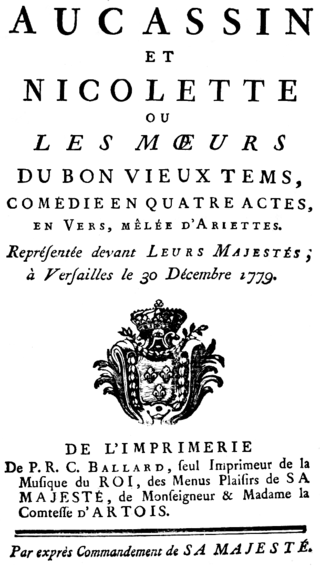
Aucassin et Nicolette, ou Les moeurs du bon vieux tems is a French opéra comique by André Grétry. It takes the form of a comédie mise en musique in four acts. The work was first performed by the Comédie-Italienne at the Palace of Versailles on 30 December 1779 and subsequently at the Hôtel de Bourgogne in Paris on 3 January 1780. It was also revived in 1782 in a version reduced to three acts.
Louis Anseaume was a French playwright and librettist.

Nina, ou La folle par amour is an opéra-comique in one act by the French composer Nicolas Dalayrac. It was first performed on 15 May 1786 by the Comédie-Italienne at the first Salle Favart in Paris. The libretto, by Benoît-Joseph Marsollier des Vivetières, is based on a short story by Baculard d'Arnaud.

L'école de la jeunesse ou Le Barnevelt françois is an opéra comique in three acts by the composer Egidio Duni. The libretto, by Louis Anseaume, is based on George Lillo's play The London Merchant or The History of George Barnwell (1731). The opera was first performed at the Opéra-Comique in Paris on 24 January 1765.

Louis Emmanuel Dupaty was a French playwright, naval officer, chansonnier, journalist and administrator of the Bibliothèque de l'Arsenal. His brother was the sculptor Louis Dupaty.

Pierre-Louis Moline was a prolific French dramatist, poet and librettist. His play La Réunion du six août was one of the longest-running patriotic pieces during the time of the French Revolution with 52 performances at the Paris Opéra. He also wrote the epitaph for the tomb of Jean-Paul Marat. However, he is best remembered today for having adapted Calzabigi's libretto for Gluck's Orphée et Euridice.
Prosper-Didier Deshayes was an opera composer and dancer who lived and worked in France. In 1764 he was a balletmaster at the Comédie-Française. By 1774 he had become an assistant (adjoint) at the Paris Opéra. His first opera Le Faux serment ou La Matrone de Gonesse, a comédie mêlée d'ariettes in two acts, was first performed on 31 December 1785 at the Théâtre des Beaujolais in Paris and became a popular success. He went on to have another 18 works performed at various venues in Paris, but only two, La faut serment and Zélie, ou Le mari à deux femmes, a 3-act drame first performed at the Salle Louvois on 29 October 1791, were ever published as musical scores. He also participated in the collaborative Revolutionary opera Le congrès des rois, a 3-act comédie mêlée d'ariettes, which combined music written by Deshayes and 11 other composers and was first performed by the Opéra-Comique at the Salle Favart on 26 February 1794. He died in Paris.

Jean-Pierre Solié was a French cellist and operatic singer. He began as a tenor, but switched and became well known as a baritone. He sang most often at the Paris Opéra-Comique. He also became a prolific composer, writing primarily one-act comic operas.
Nicolas-Étienne Framery was a French music theorist, critic and lyric writer associated with opera, especially opéra comique. He wrote and adapted librettos. His work became more academic and abstract and he eventually became surintendant de la musique for the Comte d'Artois,.
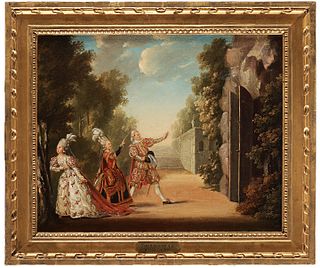
La belle Arsène (1773) is a French opéra comique by Pierre-Alexandre Monsigny to a libretto by Charles-Simon Favart. The opera was first performed on 6 November 1773 in three acts by the Comédiens Italiens ordinaires du Roi before Louis XV at the Palace of Fontainebleau. This version was published in 1773 as comédie-féerie en trois actes, mêlée d'ariettes. A revised version in 4 acts was presented on 14 August 1775 by the same company at their theatre in Paris, the Hôtel de Bourgogne. From the 1776 edition onwards it is always described as "in four acts."

Benoît-Joseph Marsollier (also known as Benoît-Joseph Marsollier des Vivetières, was a French playwright and librettist. He is particularly noted for his work in opéra comique. In 1780 he also led the first exploration of the Grotte des Demoiselles.

Alexandro Marie Antoin Fridzeri or Frixer was the most renowned of mandolin virtuosi, a clever violinist, organist, and a composer whose works met with popular favor. Among his works were sonatas and chamber music and operas. His life began and ended with tragic notes, losing his eyesight and later his home and possessions. Music historian Philip J. Bone called Fridzeri " an artist of undoubted genius and a man of most remarkable character, which was fully tried under great adversity." The late Giuseppe Bellenghi, mandolinist and composer, dedicated his variations for mandolin and piano on the Carnival of Venice, to the memory of Fridzeri, the blind mandolin player and composer.
Barnabé Farmian Durosoy, was an 18th-century French journalist and man of letters, both a playwright, poet, novelist, historian and essayist. Founder and editor of a royalist newspaper in 1789, he was the first journalist to die guillotined under the reign of Terror.
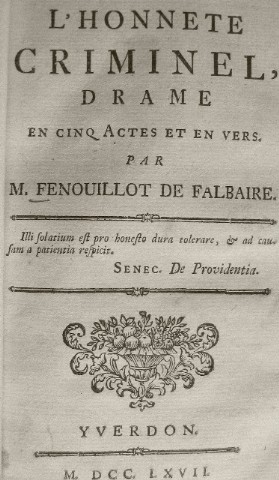
Charles-Georges Fenouillot de Falbaire de Quingey was an 18th-century French playwright.

Silvain is a one-act opéra-comique by André Grétry with a libretto by Jean-François Marmontel. It was first performed at the Comédie-Italienne on 19 February 1770 and was one of Grétry's biggest early successes. The plot concerns Silvain, who works as a poor farmer after being disinherited by his rich father for marrying a lower-class woman. The pastoral theme and its celebration of rural life was common in opéra-comique of the time but Marmontel's libretto goes much further in advocating social equality and defending the rights of peasants against the encroachment of landowners.
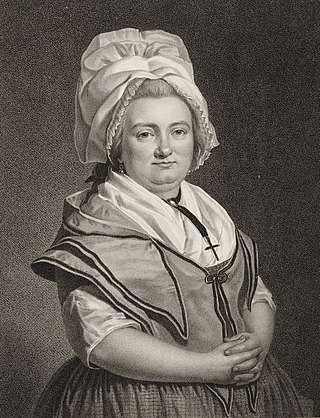
Rose Françoise Carpentier called Madame Gonthier 7 December 1829, was a French actress and lyrical artist.